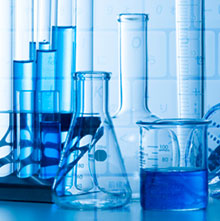| Aligned to Science TEKS with clear Learning Outcomes. TEKS
- 2A Know the definition of science and understand that it has limitations, as specified in subsection (b)(2) of this section
- 2B Know that hypotheses are tentative and testable statements that must be capable of being supported or not supported by observational evidence. Hypotheses of durable explanatory power which have been tested over a wide variety of conditions are incorporated into theories
- 2C Know scientific theories are based on natural and physical phenomena and are capable of being tested by multiple independent researchers. Unlike hypotheses, scientific theories are well-established and highlyreliable explanations, but may be subject to change as new areas of science and new technologies are developed
- 2D Distinguish between scientific hypotheses and scientific theories
- 2E Plan and implement descriptive, comparative, and experimental investigations, including asking questions, formulating testable hypothesis, and selecting equipment and technology
- 2F Collect and organize qualitative and quantitative data and make measurements with accuracy and precision using tools such as calculators, spreadsheet software, data-collecting probes, computers, standard laboratory glassware, microscopes, various prepared slides, stereoscopes, metric rulers, electronic balances, gel electrophoresis apparatuses, micropipettors, hand lenses, Celsius thermometers, hot plates, lab notebooks or journals, timing devices, cameras, Petri dishes, lab incubators, dissection equipment, meter sticks, and models, diagrams, or samples of biological specimens or structures
- 2G Analyze, evaluate, make inferences, and predict trends from data
- 2H Communicate valid conclusions supported by the data through methods such as lab reports, labeled drawings, graphic organizers, journals, summaries, oral reports, and technology-based reports
- 3A In all fields of science, analyze, evaluate, and critique scientific explanations by using empirical evidence, logical reasoning, and experimental and observational testing, including examining all sides of scientific evidence of those scientific explanations, so as to encourage critical thinking by the student
- 3B Communicate and apply scientific information extracted from various sources such as current events, news reports, published journal articles, and marketing materials
- 3C Draw inferences based on data related to promotional materials for products and services
- 3D Evaluate the impact of scientific research on society and the environment
- 3E Evaluate models according to their limitations in representing biological objects or events
- 3F Research and describe the history of biology and contributions of scientists
|
 |